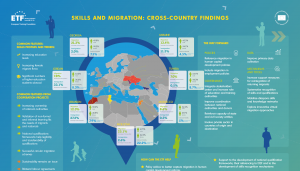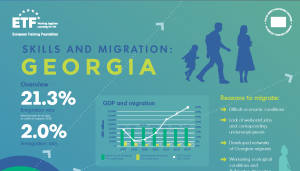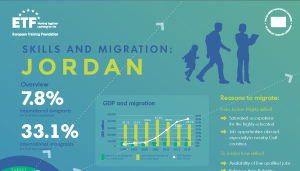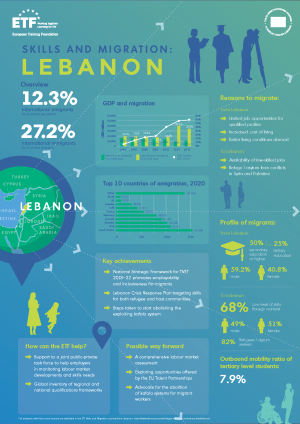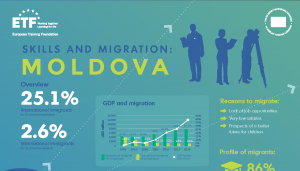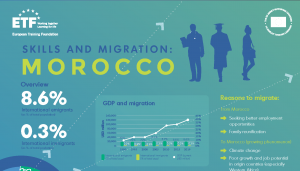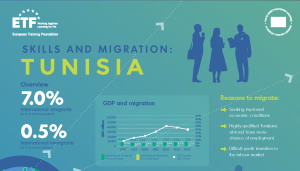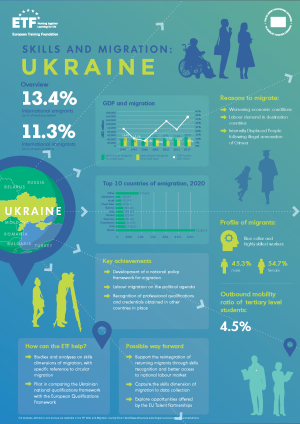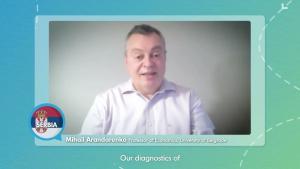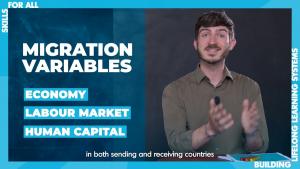
Skills and migration
The ETF works on the skills dimensions of migration to help people in EU neighbouring countries improve their employability in a global labour market.
What's new in 2025?
To address the growing challenges of labour migration and better understand the links between mobility, skills development, and employment, the ETF launched the Community of Migration Experts (MIGCOM) in April 2025.
As part of the wider Skills Lab Network of Experts, MIGCOM brings together leading specialists from universities, research centres, and institutions worldwide, offering a unique platform to explore the complex dynamics and impacts of labour migration. The community’s goal is to carry out in-depth research and produce evidence on labour migration trends to inform forward-looking policy dialogue between the EU and its neighbouring countries. Experts and institutions keen to join this dynamic community can register their interest at this EUSurvey.
What are our key areas of work?
- Migrant women’s learning pathways and how they interact with lifelong learning systems in their countries (reports published in 2024: Migrant women as learners, in particular in Georgia, Morocco and Tunisia; and a policy briefing: Migrant women call for skills).
- The recognition of skills and qualifications, including a reference to migrants and their specific needs. Research and data analysis were carried out in 48 countries in 2022–23 (report produced in 2023: Mapping of qualifications recognition centres).
- The triangular relationship between migration, human capital formation, and labour markets. Research and data analysis were carried out in the Western Balkan countries in 2020–21 (reports produced in 2021: Albania, Bosnia and Herzegovina, Kosovo, Montenegro, North Macedonia, Serbia and the Western Balkans).
- Policy responses and good practices related to the skills dimensions of migration, as part of the assessment of human capital development systems (country fiches produced in 2021: Georgia, Jordan, Lebanon, Moldova, Morocco, Tunisia and Ukraine).
How do we support EU policies on labour migration?
- We help to implement the labour migration component of the European Commission’s New Pact on Migration and Asylum.
- We contribute to the design and carrying out of Talent Partnerships with Egypt, Morocco and Tunisia for win-win-win solutions for migrants, their countries of origin and the countries of destination.
- We also help in implementing the Commission's Recommendation on the recognition of qualifications of third-country nationals.
Contact us: migration-team@etf.europa.eu
Leaflet
Media
![]() Lives
Lives
